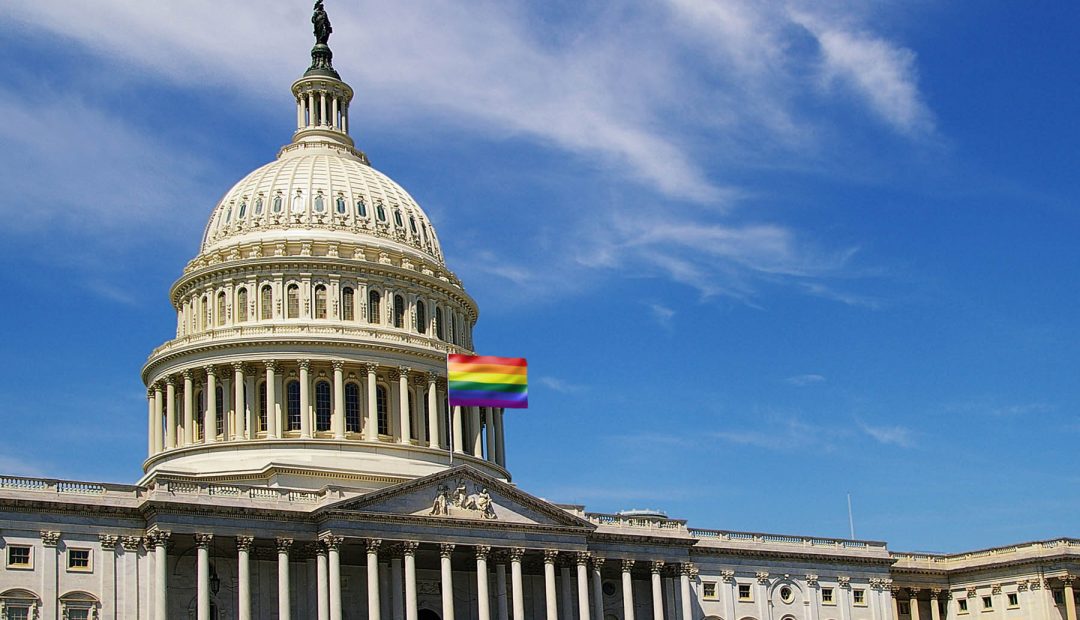The Equality Act, a critically important bipartisan legislation that would finally provide clear, comprehensive non-discrimination protections for LGBTQ people under our nation’s civil rights laws, has been reintroduced to Congress today.
Brought forth by Representatives David Cicilline (D-RI) and Brian Fitzpatrick (R-PA) in the House and Senators Jeff Merkley (D-OR), Tammy Baldwin (D-WI), and Cory Booker (D-NJ) in the Senate, the measure has unprecedented support from nearly 70 percent of Americans, more than 280 members of Congress, 165 major businesses and 288 statewide and national organizations. Speaker Nancy Pelosi (D-CA) has made passing the Equality Act a top priority for the new Congress.
Discrimination is a real and persistent problem for LGBTQ Americans. HRC polling has found that nearly two-thirds of self-identified LGBTQ Americans report experiencing discrimination. Currently, 50 percent of LGBTQ Americans live in the 30 states that still lack statewide legal non-discrimination protections, leaving their residents and visitors at risk of being fired, denied housing, or refused service because of who they are or whom they love. The Equality Act would guarantee existing civil rights laws apply to LGBTQ people by providing clear, consistent non-discrimination protections based on sexual orientation or gender identity across key areas of life, including employment, housing, credit, education, public spaces and services, federally-funded programs and jury service.
More than 160 major corporations have joined HRC’s Business Coalition for the Equality Act. While the overwhelming majority of America’s leading businesses are already addressing workplace fairness for LGBTQ employees, these major employers know how important it is to have a federal legal standard that guarantees all employees have the same protections — no matter where they live. The slate of companies endorsing the Equality Act have combined operations in all 50 states, headquarters in 27 states, and collectively generate $3.8 trillion in revenue. In total, these companies employ more than 8.7 million people across the U.S. [The Washington Blade]


